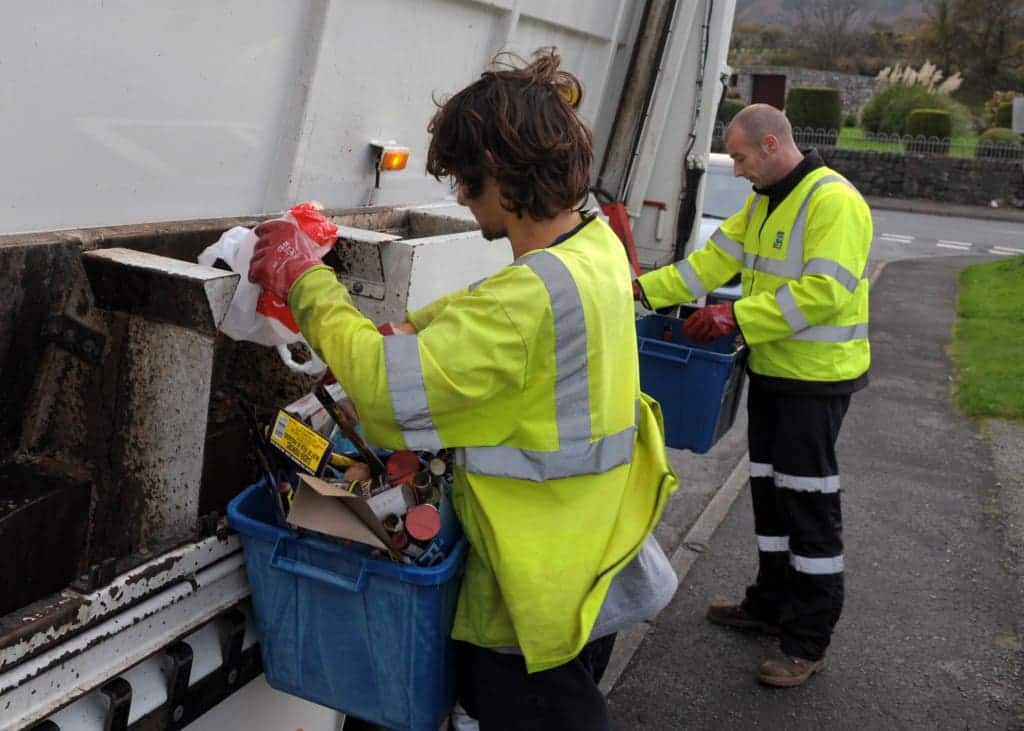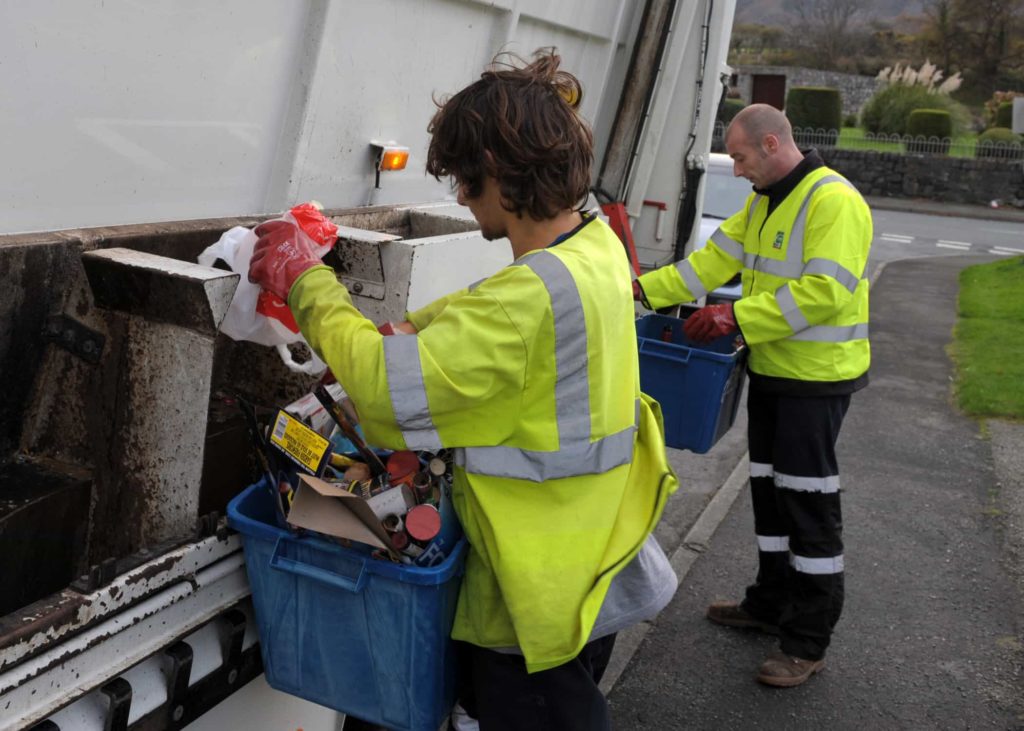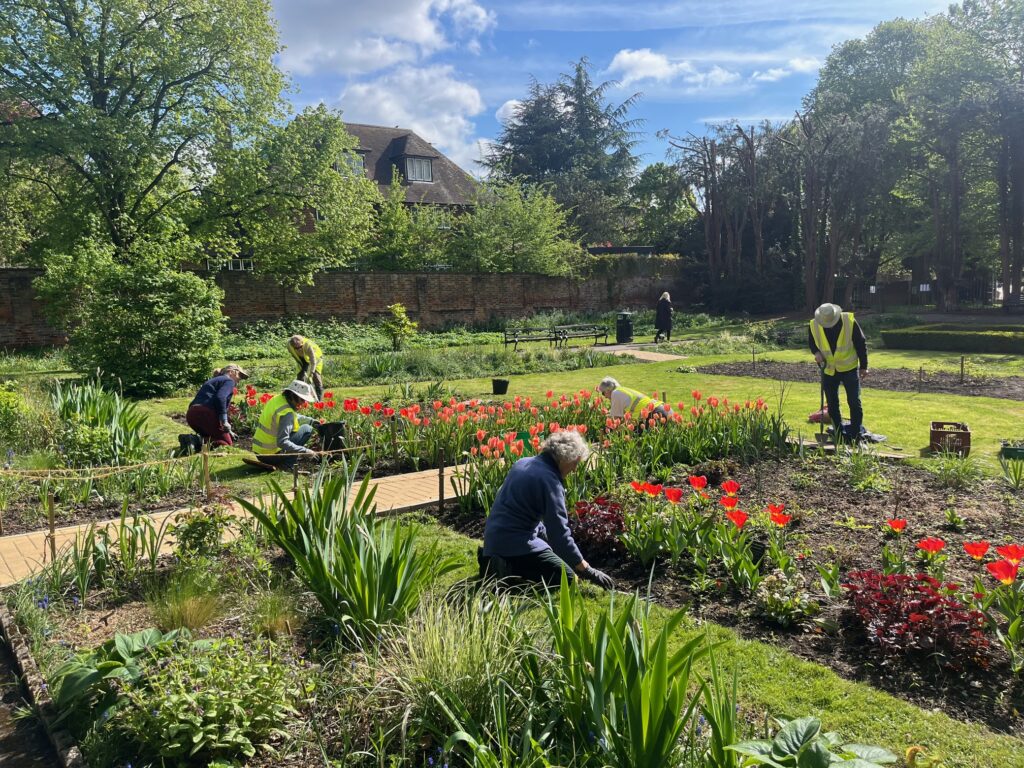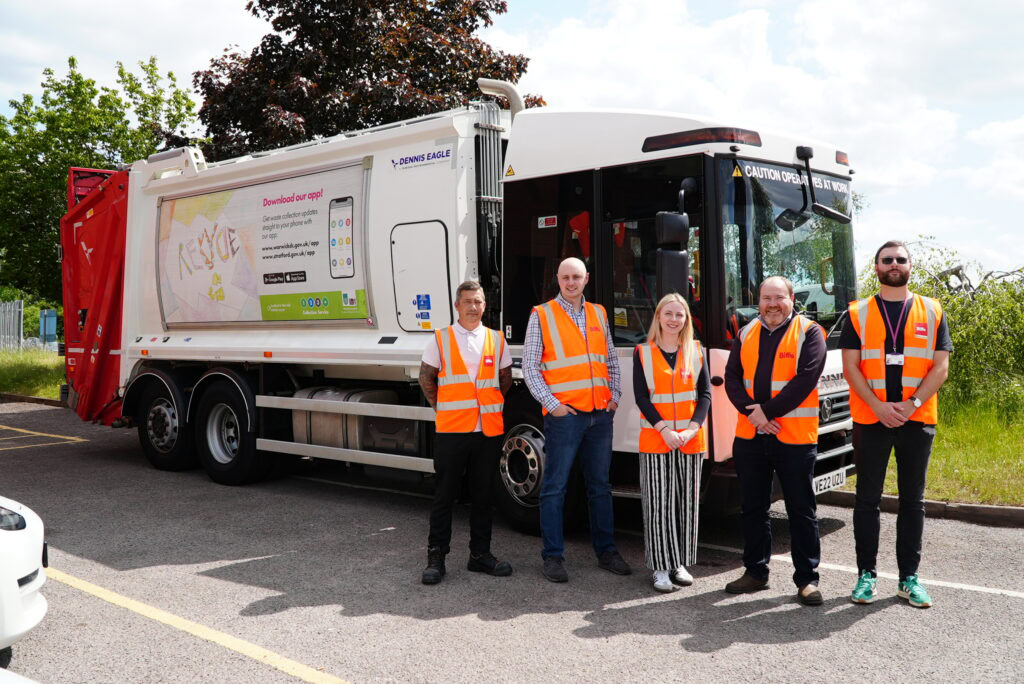Gwynedd council in North West Wales is to switch to collecting residual waste from households every three weeks, under plans approved by its cabinet at a meeting yesterday (April 29).
The Plaid Cymru-led council claims that the change from fortnightly waste collections will help to increase participation in its dry and food waste recycling schemes as it strives to meet Wales recycling targets which will result financial penalties if missed.

It is also believed that the service change could lead to savings of around 350,000 per year for the local authority in reduced service costs.
The decision to switch to three weekly residual waste collections was taken after councillors were presented with the results of a public consultation which had been running since January (see letsrecylce.com story).
Despite 89% of those surveyed claiming that the council needed to do more to encourage residents to recycle, 56% claimed that by switching to a three weekly residual waste collection service would cause problems for their household.
Food waste
But, councillors were told that a recent waste composition survey found that as much as 50% of the residual waste discarded by householders was food waste, for which a kerbside recycling scheme already exists, with householders having been given a 22-litre caddy, collected weekly.
‘As a council we must now take steps to persuade those residents who continue to throw waste that can be recycled or composted in their residual waste wheelie bin to start using the convenient weekly recycling and food waste services.’
Cllr Gareth Roberts, Gwynedd council
The council had also sought the advice of the Welsh Government minister Alun Davies, who had said that he was supportive of efforts to move towards a sustainable waste management service.
The changes will be introduced in the Dwyfor area of the county from October 2014, and will then be phased-in in the Meirionnydd and Arfon areas during 2015. Residents will continue to receive weekly recycling and food waste collections while garden waste will be collected fortnightly.
Residual waste is currently collected from households via 240 litre wheeled bins, or households are given three black bags per fortnight. Dry recycling is collected through a blue box system, with materials sorted at the kerbside by collection operatives.
Falkirk
Gwynedd council is among the first local authorities in the UK to implement a three-weekly collection service for residual waste following plans by Falkirk council in Scotland to reduce its collection frequency to once every three weeks, due to come into effect from next month (see letsrecycle.com story).
Gwynedd councils environment cabinet member, councillor Gareth Roberts said: We are extremely grateful to those Gwynedd residents who are already making the effort to recycle. However, only around half of Gwynedds households currently make use of our weekly recycling and food waste services.
As a council we must now take steps to persuade those residents who continue to throw waste that can be recycled or composted in their residual waste wheelie bin to start using the convenient weekly recycling and food waste services.
In 2012/13, Gwynedd was within a hairs breadth of incurring a 123,000 Welsh Government fine for failing to reach national recycling and landfill targets. By acting now and working with local communities, we are confident that we will be able to significantly improve our recycling levels so that we can avoid huge financial penalties which we simply cannot afford.
Related Links
Gwynedds recycling rate for 2012/13 stood at 51.2%, falling short of the 52% overall target which was in place across the country. The Welsh Government took the decision not to fine individual councils over their failure to meet the target because the overall target was met. The minimum target is set to climb to 58% by March 2016.
A predominantly rural region, Gwynedd is the second largest county in Wales by area and has a population of more than 120,000.









Subscribe for free